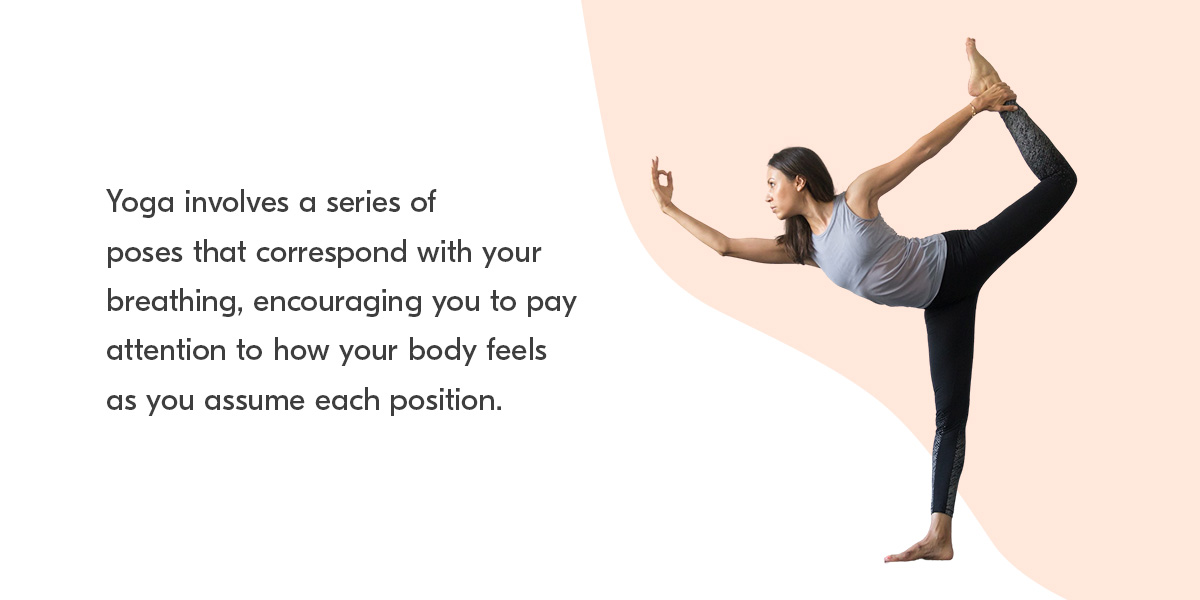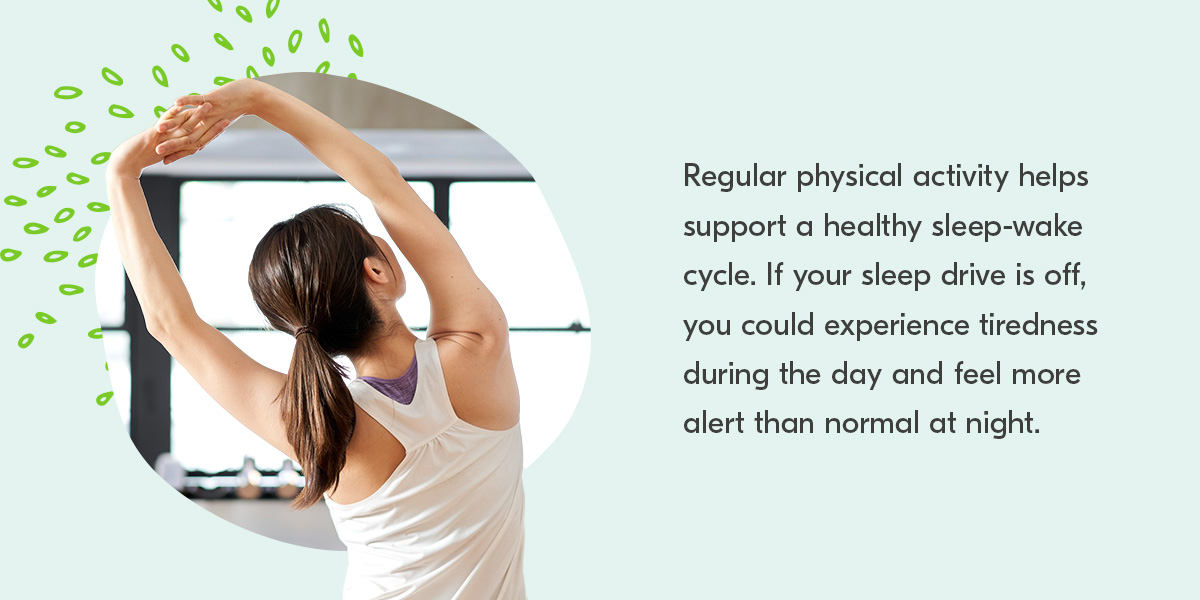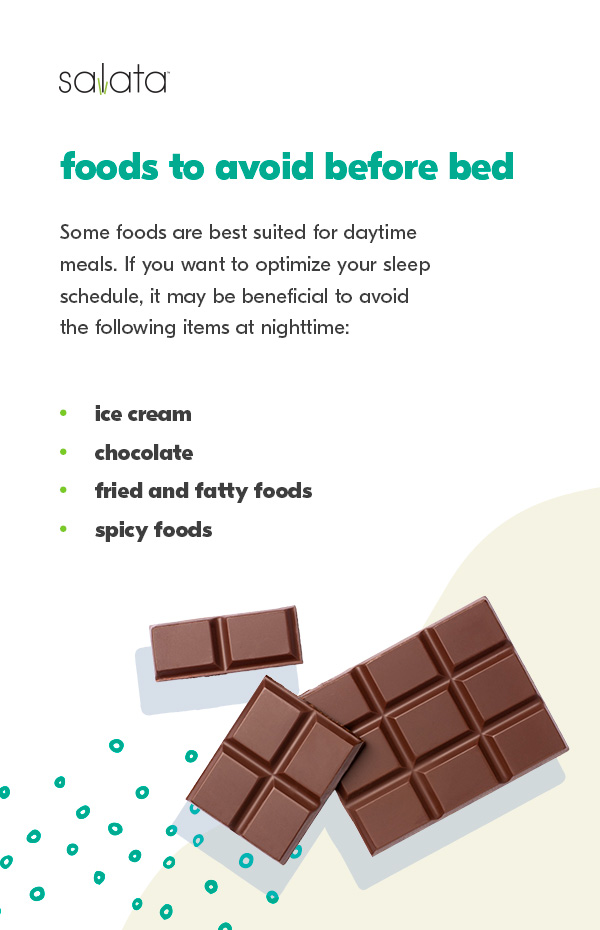6 Tips for Better Sleep
Are you looking for ways to feel your best and boost your health? Sleep is a great place to start.
From regulating hormones to managing emotions, getting enough quality sleep is essential for many of the body’s necessary functions. Check out these 6 tips for better sleep, and find out how they can benefit your health!
1. Practice Stress Reduction Techniques
Practicing stress reduction techniques can help you effectively wind down before bed. As you prepare for sleep, there are a few things you can do to increase feelings of calmness and relaxation.
The following will help you learn how to reduce stress and improve sleep quality:
Breathwork
One way you can reduce feelings of stress is breathwork. Slowing down and focusing all your energy on your breathing can help quiet your mind.
You can do breathwork before or after getting in bed. All you have to do is find somewhere comfortable to sit or lay to get started. Put all your attention on the air entering and exiting your lungs. Study how your body feels as you inhale and exhale, breathing deep into your belly.
A few minutes of breathwork can help set you up for a good night’s sleep, allowing your heart rate to slow and blood pressure to lower.
Progressive Muscle Relaxation
Another way to tap into a state of calm and peace is a practice called progressive muscle relaxation (PMR). You’ll begin by finding a comfortable and quiet place to sit or lie down.
Next, you’ll close your eyes and focus on breathing in for five seconds and out for five seconds. Once you’re in the rhythm, you can begin tensing each muscle group in your body, starting with the head and working down the body.
Tense the muscle group as you breathe in and release the tension as you exhale. This process is effective for improving physical and mental relaxation.
Yoga Stretches

Engaging in yoga stretches can be an effective method to lower stress levels and relieve tension throughout your body before bedtime. Yoga involves a series of poses that correspond with your breathing, encouraging you to pay attention to how your body feels as you assume each position.
Some popular poses to try out during your nighttime routine include:
- Standing forward bend (Uttanasana): You can gently stretch the back of your legs by standing with your feet at the same distance as your hips. Slowly bend your torso while keeping your legs straight and holding each elbow in the opposite hand. Reach the top of your head towards the ground and shake your head “yes” and “no” to relax the tension in your neck. Stay here for a few seconds before slowly standing up.
- Legs up the wall (Viparita Karani): Sit on the floor or on your bed facing a wall. Rest your back on the floor or your bed, and place your legs up against the wall so that your body forms an L. Stay there for a minute or two. This pose can help recirculate your blood flow and relax the body.
- Child’s pose (Balasana): Come to the floor and sit on your feet so that your knees are positioned at the same distance as your hips and your toes are touching. Slowly stretch your body over your thighs, reaching your arms directly in front of you with your palms on the mat. Let your forehead relax to the ground and enjoy the stretch before slowly coming back up.
Journaling
Journaling is a proven coping mechanism that helps process emotions and alleviates feelings of anxiety when done regularly.
Writing down your thoughts in a notebook can help you gain perspective and lower your stress levels. You don’t have to write in complete sentences or worry about being grammatically correct. Journaling is all about expressing what’s on your mind and getting it all out on paper.
You can redirect your thoughts and settle into a calming, more zen way of being. You may want to try journaling right before bed to wind down and release stress.
2. Explore the Best Natural Sleeping Aids
When trying to improve sleep, it is important to start with your bedtime habits, also known as sleep hygiene. A few tips for improving your sleep hygiene include the following:
- Avoid caffeine: Try to keep caffeinated drinks to the morning. Consuming them too close to sleep can cause you to feel more alert and awake.
- Skip alcohol: Drinking alcoholic beverages in the evening can cause sleep cycle disruptions, so stick with warm tea or milk before bed.
- Limit daytime naps: Naps should generally last less than 20 minutes to avoid disrupting overnight sleep patterns.
- Tire yourself out: Getting your energy out throughout the day will help you feel more tired and ready for sleep at night.
Making these small changes and adding a natural sleep aid into your routine can help you get more shut-eye. Certain herbs and supplements help tell your brain it is time to settle down and rest. Check out the best ingredients to help you achieve better sleep:
- Melatonin: Some people call melatonin the vampire hormone because the brain naturally releases it at night when it’s time to start winding down. You can take a melatonin supplement to enhance feelings of sleepiness before bed.
- Cannabidiol (CBD): Taking CBD at night may help improve the quality and duration of your sleep.
- Lavender essential oil: Lavender is known for having relaxing properties that help people fall asleep. A recent study shows lavender essential oil was effective in boosting the sleep quality of patients with depression.
Consider asking your doctor about natural sleep aids. These are generally helpful when easing into a good sleeping routine, though they may not be suitable for daily use.
3. Work Exercise and Movement Into Your Routine
Even if your schedule is hectic and all over the place, sneaking in a few minutes of movement every day can be highly beneficial for your outlook on life and your sleep patterns. Regular exercise can have many health benefits, including:
- Reducing health risks
- Strengthening bones and muscles
- Improving daily activities
- Managing chronic conditions
- Boosting mood
Sticking to a routine can make your body and mind feel better, leading to better relaxation at night. Exercise is effective in making you feel good and improving sleep.
How Does Exercise Improve Sleep?

Engaging in routine exercise can help you achieve a better night’s sleep through the following:
- Increasing your sleep drive: Regular physical activity helps support a healthy sleep-wake cycle. If your sleep drive is off, you could experience tiredness during the day and feel more alert than normal at night. Exercise helps regulate your energy and natural processes.
- Tiring out your body: Working out during the day can tire out your body and make falling asleep easier. Getting your energy out is an important part of regulating your sleep.
- Relieving stress and anxiety: Worrisome thoughts can keep you awake and interrupt your sleep throughout the night. When you exercise during the day, you can enjoy the benefits of anti-stress hormones, such as endorphins, that can help combat negative feelings and make you calmer.
How Does Sleep Improve Mental Health?
Think of a time when you woke up feeling awake and well-rested after eight hours of sleep. Maybe you got out of bed before your alarm was set to go off because you felt good and excited to get on with your day.
Now think of waking up on a morning when you only got a few hours of sleep and your alarm jolted you awake. You’re less likely to feel chipper and alert.
The quality and quantity of your sleep determine how you feel in the morning and set the tone for your day. Getting adequate sleep is essential for managing emotions and improving your mood. Sleep also plays a role in regulating hormones, including:
- Cortisol
- Insulin
- Melatonin
- Estrogen and progestinerone
Hormone regulation is key to improving and maintaining good mental health.
4. Eat Foods That Improve Sleep
You can also get a better night’s sleep by eating the right foods before bed. Check out these options for improving sleep:
Magnesium-Rich Foods
Research shows that magnesium plays a role in sleep and melatonin regulation. One study found that older adults with insomnia experienced the following results after taking 500 milligrams of magnesium for eight weeks:
- Increased levels of natural melatonin
- More uninterrupted sleep
- Less time falling asleep
- Staying asleep longer
Some magnesium-rich foods to try include the following:
- Seeds
- Oatmeal
- Avocado
- Nuts
- Legumes
- Leafy greens
At Salata Salad Kitchen, you can customize a delicious salad or wrap to include your favorite magnesium-rich greens and toppings.
Fatty Fish
Fish are another great food option for anyone who wants to improve sleep because they are a good source of omega-3 polyunsaturated fatty acids. Research suggests that consuming enough omega-3 can enhance sleep quality.
At Salata, you can add salmon to your salad or wrap to enhance your meal and help boost your omega-3 intake.
Foods to Avoid Before Bed

Some foods are best suited for daytime meals. If you want to optimize your sleep schedule, it may be beneficial to avoid the following items at nighttime:
- Ice cream: Ice cream tends to have high levels of sugar that can spike blood sugar levels and interfere with your tiredness.
- Chocolate: If you want a treat before bed, skip the chocolate. It contains caffeine that can make you feel more alert than relaxed.
- Fried and fatty foods: Fried and fatty foods are known to disrupt digestion and can keep you up at night.
- Spicy foods: You’ll also want to pass on spicy foods in the evening. They can elevate body temperature and may irritate the stomach.
5. Develop a Good Sleeping Schedule
Having a nighttime routine can help you regulate your sleep schedule and improve your daily habits. The main elements of a good sleeping schedule include:
Consistency
Staying on a consistent schedule is one of the best ways to enhance sleep. Try to go to bed and wake up at the same time every day, even on the weekends. It helps regulate your internal clock so you feel alert during the day and sleepy at night.
When deciding on what times to get in and out of bed, choose times that allow you to get as close to eight hours of sleep as you can with your lifestyle.
Environment
Your environment has major influences on your ability to fall asleep and stay asleep. It is best to sleep in a dark, calm room. Make sure your thermostat is set to a comfortable temperature so you won’t wake up from being too hot or cold throughout the night. Consider introducing soothing sounds like white noise to enhance the ambiance further.
Comfort
Adding some comfort to your schedule can also help your sleep better. Take inventory of your bedding and swap out anything that doesn’t make you feel cozy and excited for bedtime. Assess your pajamas too. You want items that are soft and allow for a cool, comfortable night.
Your body position is also very important. Your pillows should offer adequate neck support, and you should sleep in a way that helps your body feel good. You can also even improve your posture while you sleep by sleeping on your back.
6. Avoid Blue Light in the Evening
A simple and effective way to improve sleep is to avoid blue light before bed. The screens on our electronic devices emit blue wavelengths that can impact our circadian rhythms and make us feel more alert.
To reduce the effects of blue light, consider setting a specific time at night when you plug in all your devices and don’t return to them until the next day. If you have to be on your devices before bed for any reason, consider getting a pair of glasses with blue light-blocking lenses.
Here are some fun things to do in the evening instead of screen time:
- Read a fun book: If you enjoy watching a television series in the evenings, consider reaching for a good book instead. You’ll get the fun of a compelling story without the bright screen.
- Do a puzzle: Exercise your brain a little with a jigsaw puzzle. As you get more skilled, you can complete bigger and more complicated pictures.
- Meditate: Find a comfortable place to sit or lay and practice meditation. Doing so will allow you to center yourself and effectively wind down for the evening.
Explore the Salata Menu Today
For those days when you want a convenient, healthy meal made with fresh ingredients, turn to Salata. You can customize your salad or wrap order with over 50 different toppings. You deserve a meal that tastes delicious and makes you feel good. Whether you’re looking to eat better to improve sleep or you want something easy and nutritious, Salata is here to be your kitchen away from home.
Are you hungry yet? Explore our menu and find a Salata location near you today!




Comments